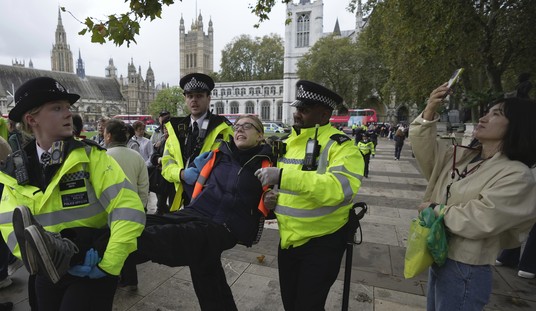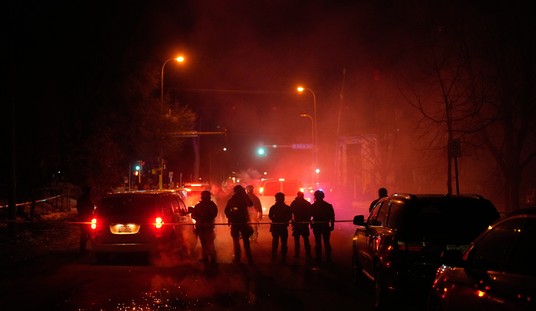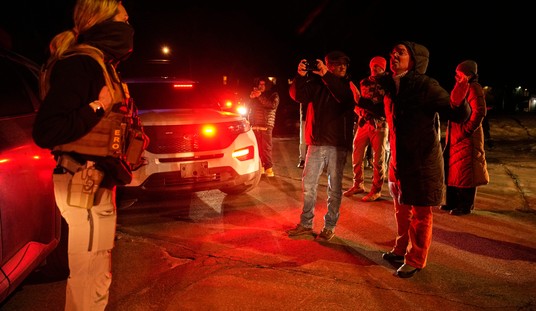The California Supreme Court upheld Proposition 8 yesterday, the initiative Golden State voters approved last fall to amend our state’s constitution to recognize only unions between one man and one woman as marriages.
Now advocates of gay marriage have their work cut out for them. Since the court refused to respond favorably to their opinion, they must go back to the people and ask them to reverse Prop 8. To do that, they’ll need make a better case than they did last fall.
While the court did overturn Prop 8, the decision was not entirely bleak for gay people. The court ruled that the marriages of same-sex couples performed after it struck down state statutes limiting marriage to opposite-sex couples “but prior to the effective date of Proposition 8 remain valid.” Moreover, in its ruling the court made clear that this was an issue of state constitutional jurisprudence:
[T]he principal issue before us concerns the scope of the right of the people, under the provisions of the California Constitution, to change or alter the state Constitution itself through the initiative process so as to incorporate such a limitation as an explicit section of the state Constitution.
Indeed, Chief Justice Ronald J. George devotes the better part (indeed, almost the entirety) of his opinion to examining Proposition 8 in light of the Golden State’s liberal initiative process for amending the state constitution. The court distinguishes this process from those in other states and at the federal level, pointing out:
[T]he process for amending our state Constitution is considerably less arduous and restrictive than the amendment process embodied in the federal Constitution, a difference dramatically demonstrated by the circumstance that only 27 amendments to the United States Constitution have been adopted since the federal Constitution was ratified in 1788, whereas more than 500 amendments to the California Constitution have been adopted since ratification of California’s current Constitution in 1879.
In short, the decision turned on whether Proposition 8 was an amendment or revision to the state constitution. A revision would first have to pass through the state Legislature.
While the court upheld Prop 8, it did not overturn the state’s domestic partnership program; indeed, the very language of the ruling indicates a strong affirmation of this policy which grants same-sex couples the same privileges as married different-sex couples. All the initiative did was to limit “the designation of marriage to opposite-sex couples”:
Nor does Proposition 8 fundamentally alter the meaning and substance of state constitutional equal protection principles as articulated in that opinion. Instead, the measure carves out a narrow and limited exception to these state constitutional rights, reserving the official designation of the term “marriage” for the union of opposite-sex couples as a matter of state constitutional law, but leaving undisturbed all of the other extremely significant substantive aspects of a same-sex couple’s state constitutional right to establish an officially recognized and protected family relationship and the guarantee of equal protection of the
laws. …As a qualitative matter, the act of limiting access to the designation of marriage to opposite-sex couples does not have a substantial or, indeed, even a minimal effect on the governmental plan or framework of California that existed prior to the amendment.
In sum, it’s all just about which unions the state recognizes as married. With California’s domestic partnership program remaining in place, the state will simply refrain from recognizing same-sex unions as marriages but will continue to grant them the same benefits it had in the past.
With rallies planned across the state and with gay groups beginning to lay the groundwork for a campaign to overturn Prop 8 at the ballot box, the debate will revolve around, to borrow an expression from Cabaret lyricist Fred Ebb, “one litle word.” The question becomes whether the state of California should call same-sex unions “marriages.”
For California to again use that word to define same-sex unions, the state constitution must be amended. And to amend the constitution, advocates of changes will have to do just what the proponents of Prop 8 did: put an initiative on the ballot and persuade citizens to vote for it. If they are to succeed in persuading citizens to vote in favor of such an initiative, advocates of gay marriage will need avoid the mistakes they made in the past. All too often, they chose to attack opponents of gay marriage, often in very personal terms.
Instead of attacking, they need to eschew the accusatory rhetoric; opponents of Prop 8 called supporters of the successful initiative “haters,” reserving special scorn for Mormons, who were among the most generous supporters of the “Yes on 8” campaign. Bill Rosendahl, an openly gay Los Angeles city councilman, called their church a “perversion of Christianity.”
And we’re all familiar with how gay marriage advocates smeared beauty queen Carrie Prejean for saying she believed marriage should be between a man and a woman.
That type of name-calling must stop. Such behavior will do nothing to change the hearts and minds of California voters.
They simply need to make a better case for gay marriage.
To that end, I would recommend a major overhaul of the leadership of the gay organizations in the Golden State, replacing individuals with a background as left-wing partisans with those able to address a broader audience. They need advocates who can reach socially moderate Republican and Independent voters who personally believe marriage is between one man and one woman, but are open to secular recognition of same-sex marriages. Such individuals might be persuaded to support state recognition of same-sex civil marriages, provided the law so recognizing those unions includes religious-liberty protections. (Those protections would reassure people of faith that state recognition of gay marriage would not prevent religious denominations from defining marriage according to their creeds.)
While yesterday’s decision is a disappointment to many who favor state recognition of gay marriage, it does not preclude them from acting in the future to overturn the new provision in the state constitution defining marriage.
It’s now up to those seeking to overturn Prop 8 to make their case to the citizens of the Golden State. And should they make a careful, considered case for state recognition of same-sex marriage, they could see the proposition overturned as soon as the 2010 elecitons. Let us hope they have learned from past failings and will, in the future, promote the benefits of state-recognized gay marriage rather than attack those who oppose such recognition.









Join the conversation as a VIP Member